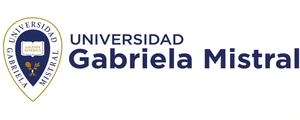Gabriela Mistral University Repository
The Gabriela Mistral University Library has developed the following Academic Repository in order to preserve, disseminate and make available the full-text contents of the academic production developed by the different actors in the academic and research field of the University.
The UGM University at the beginning of the year 2017 incorporated the UCINF University, also adding that collection where we find memories, theses, degree works, academic magazines, speeches, books, digital and sound files. Contact: [email protected]
The UGM University at the beginning of the year 2017 incorporated the UCINF University, also adding that collection where we find memories, theses, degree works, academic magazines, speeches, books, digital and sound files. Contact: [email protected]
Habilidades comunicativas de titulados de carreras de salud de nivel técnico superior de Santiago de Chile, derivadas de su capital cultural y su influencia en el desempeño laboral. Una mirada desde los empleadores
| dc.contributor.advisor | Cisterna Rojas, Vanessa. Profesora guía | |
| dc.contributor.author | Benavente González, Claudia | |
| dc.contributor.author | Rivera Pérez, Johana | |
| dc.contributor.author | Romero Villarroel, Pedro | |
| dc.date.accessioned | 2022-08-22T15:28:04Z | |
| dc.date.available | 2022-08-22T15:28:04Z | |
| dc.date.issued | 2022 | |
| dc.identifier.uri | http://repositorio.ugm.cl/handle/20.500.12743/2183 | |
| dc.description.abstract | En los últimos años, los cambios en nuestras políticas educativas han ampliado la posibilidad de acceso a la Educación Técnica Superior a individuos que en otras instancias no podrían haberlo realizado, abriendo las puertas a una población estudiantil caracterizada por su diversidad cultural. Esto al mismo tiempo nos ha enfrentado con un problema permanente, nos referimos a las habilidades comunicativas. Los individuos serán durante su vida fuertemente influenciados por los ambientes en los cuales se desarrollan, los que determinarán la expresión de atributos genéticos de diferente manera determinando su desarrollo cognitivo, actitudinal y moral. Desde las interacciones de la persona con su comunidad surgirán conceptos como el Capital Cultural. Nuestra principal preocupación surge desde la observación de las dificultades de los TENS para comunicarse y cómo estas impactarán su desempeño laboral ya que los profesionales de la salud hoy deben ser comunicadores competentes que tengan la capacidad de interactuar con sus semejantes. Desde este aspecto analizaremos cómo desde la teoría de la cortesía se pretende modelar estas conductas comunicativas. Este estudio se realizó desde una mirada de tipo exploratorio, a través de un diseño de carácter descriptivo y analítico, utilizando metodología de investigación de tipo cualitativa, basado en el modelo de la Teoría Fundada, desarrollada por Glaser y Strauss (1967). El muestreo se realizó por conveniencia el que nos permitió seleccionar aquellos casos accesibles de ser incluidos en el estudio. Finalmente concluimos que el ser humano conforma una unidad biopsicosocial que es imposible de analizar como unidad independiente debido a la influencia de los ambientes ecológicos por los que él y su comunidad transitan. Al mismo tiempo determinamos que la comunicación humana es un fenómeno social que no solamente se ancla al uso adecuado de sistemas de signos, sino que se estructura a partir de la interacción de factores tales como la familia, la educación, la sociedad, la economía y la cultura generando procesos complejos de significación que se producen en el forjado de estas relaciones sociales. PALABRAS CLAVE: Capital cultural, habilidades comunicativas, Competencias profesionales, Teoría de la cortesía | es_ES |
| dc.description.abstract | ABSTRACT In recent years, changes in our educational policies have expanded the possibility of access to Higher Technical Education to individuals who in other instances could not have done it, opening the doors to a student population characterized by its cultural diversity. This at the same time has confronted us with a permanent problem we refer as communication skills. Individuals during their lives will be strongly influenced by the environments in which they develop, which will determine the expression of genetic attributes not only in their social form, but also in their cognitive, attitudinal and moral development. From the interactions of the person with his community will arise concepts such as Cultural Capital. Our main concern arises from the observation of the difficulties of tens to communicate and how these will impact their work performance since health professionals today must be competent communicators who have the ability to interact with their peers. From this aspect we´ll analyze how from the politeness theory it is intended to model these communicative behaviors. This study was carried out from an exploratory perspective, through a descriptive and analytical design, using qualitative research methodology, based on the model of the Founded Theory, developed by Glaser and Strauss (1967). The sampling was carried out for convenience which allowed us to select those accessible cases to be included in the study. Finally, we conclude that the human being forms a biopsychosocial unit that is impossible to analyse as an independent unit due to the influence of the ecological environments through which he and his community transit. At the same time, we determined that human communication is a social phenomenon that is not only anchored to the proper use of sign systems but is structured from the interaction of factors such as family, education, society, economy, and culture generating complex processes of significance that in wrought these social relations. KEY WORDS: Cultural capital, communication skills, Professional competences, Politeness Theory. | |
| dc.description.sponsorship | Seminario de Tesis. Magíster en Docencia para la Educación Superior. Universidad Gabriela Mistral. Facultad de Educación. | es_ES |
| dc.language.iso | es | es_ES |
| dc.publisher | Universidad Gabriela Mistral | es_ES |
| dc.subject | Habilidades comunicativas | es_ES |
| dc.subject | Competencias laborales | es_ES |
| dc.subject | Educación Superior | es_ES |
| dc.title | Habilidades comunicativas de titulados de carreras de salud de nivel técnico superior de Santiago de Chile, derivadas de su capital cultural y su influencia en el desempeño laboral. Una mirada desde los empleadores | es_ES |
| dc.type | Thesis | es_ES |


